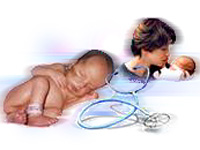Menopause - SWCH9007
Faculty: Faculty of Medicine
School: School of Women's and Children's Health
Course Outline: http://wch.med.unsw.edu.au/postgraduate-obstetrics-gynaecology
Campus: Sydney
Career: Postgraduate
Units of Credit: 6
EFTSL: 0.12500 (more info)
Indicative Contact Hours per Week: 0
CSS Contribution Charge: 3 (more info)
Tuition Fee: See Tuition Fee Schedule
Further Information: See Class Timetable
View course information for previous years.
Description
This course will cover 7 topics:
• Menopausal Physiology
• Menopausal Symptoms
• Menopausal Hormone Therapy
• Osteoporosis
• Alternative Pharmacological Therapies for Menopausal Symptoms
• Complementary and Alternative Therapies for Menopausal Symptoms
• Sexuality and Menopause
Course Aims
Learning Outcomes
• A better understanding of the historical and epidemiology aspects of the menopause
• An improved understanding of the physiology and pathophysiology of menopause
• The ability to provide competent and balanced advice on the overall management of menopausal signs, symptomatology and sequelae










